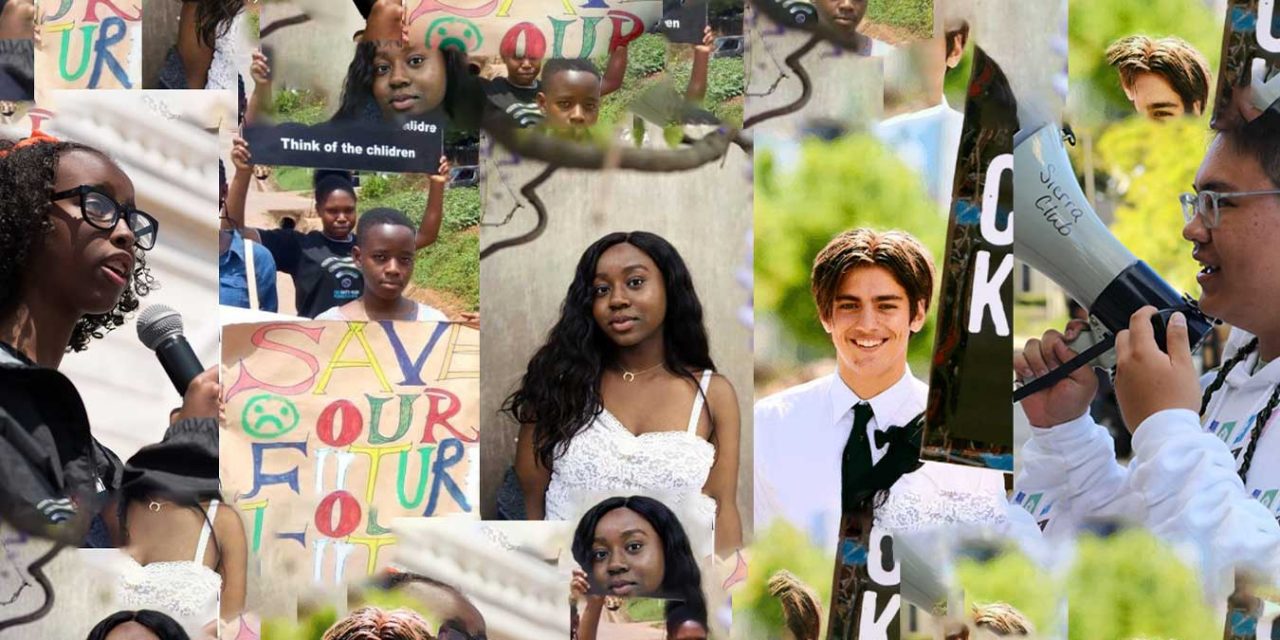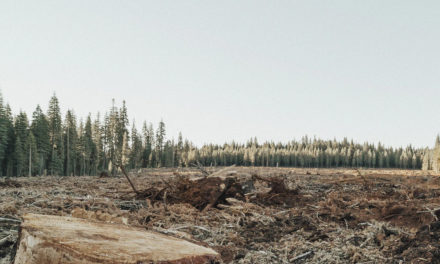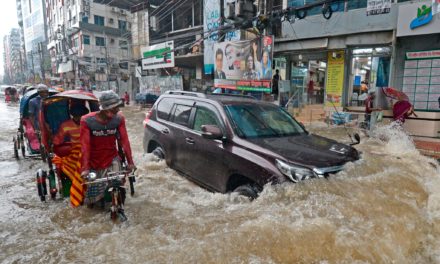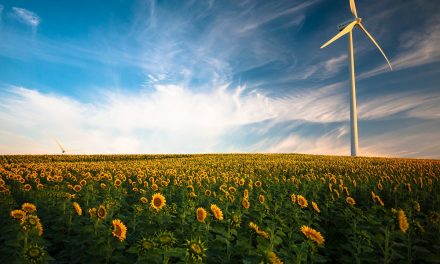Isra Hirsi (Minnesota, United States – 16)
Daughter of US Congresswoman Ilhan Omar, Isra is already part of a family breaking down social barriers. However, Isra is carving out her own legacy separate from her mother’s. The sixteen-year-old climate activist is a co-founder of US Youth Climate Strike, a movement that encourages students to join the fight against climate change and make a real difference. While more teens join the cause, many adults are still choosing to deny – from politicians to the United States’ own President.
But it doesn’t stop there. Isra is also a strong advocate for the Green New Deal, a proposal that aims to tackle climate change by making the US carbon neutral within the next 10 years. Besides that, she’s raising awareness of environmental racism and how climate change affects people from low-income, disabled and/or minority communities of colour first. One of the examples she has previously highlighted is the ongoing water crisis in Flint, Michigan where the racial makeup of the city is 56% African Americans. Since 2014, the city has been facing an acute clean water shortage. Now the activist, alongside other environmentalists, is working on stopping the Line 3 oil pipeline that is expected to run from Alberta, Canada, to Wisconsin.
The United States has already begun exhibiting the threatening result of climate change with the 2018 California wildfires devastating the largest amount of acreage ever recorded in a season. A report from the 4th National Climate Assessment concluded that unless substantial change is administered, climate calamity will cost the US billions of dollars, with severe damage to quality of life, environment, health and the economy. With the President still seen on the wrong side of history, it’s up to the kids to do what politicians won’t.
Daze Aghaji (London, United Kingdom – 19)
Part of the socio-political movement Extinction Rebellion’s youth faction, Daze is a force to be reckoned with for a number of reasons. The nineteen-year-old environmental activist is not only a university student but also stood in as a Climate and Ecological Emergency independent during the European Parliament Elections in May, highlighting the importance of changing politics to combat climate chaos. Other than attending lectures, Daze spends her time putting on strikes, handing out leaflets and planting trees, all in the hopes that the Government will pay attention and enact legislation. She has particularly highlighted London’s critical and illegal level of air pollution, which led to the death of a 14-year-old girl in 2013, and how her health was affected once moving back to the capital.
It isn’t just air pollution that the UK has to contend with. Rising sea levels are swallowing up parts of England’s coastline and extreme floods are putting homes and families at risk. However, recently, the UK Government introduced legislation that aims to reduce carbon emissions to net zero by 2050 and has become the first major economy in the world to do so. Maybe there is hope still.
Leah Namugerwa (Kampala, Uganda – 14)
Inspired by Greta Thunberg’s climate strike and haunted by the environmental injustice happening in her country, fourteen-year-old Leah has been devotedly skipping out on classes every Friday since February. The climate activist, part of the youth-led movement Fridays for Future, is passionate about the specific climate issues that face Uganda.
For a while, the East-African nation has been prone to prolonged droughts and landslides, leading to widespread hunger in certain areas. While Uganda only contributes 0.07% of GHG emissions, it is one of the highest affected when it comes to climate vulnerability with the point of no return being much closer in comparison to advanced nations that contribute higher emissions. As the effects of climate change become more apparent, social issues such as poverty, gender inequality, conflict and the like become increasingly strained.
Leah recognises this. In an interview with the BBC, she commented that climate change was intensifying gender inequality and statistics from the United Nations only confirms this. In 2018, figures from the UN showed that 80% of people displaced by climate change were women. A similar report from the World Health Organisation in 2015 showed that women were more likely to be impacted by climate change than men.
The teenager is taking the fight as far up the ranks as she can and has even started a petition demanding the Government to implement a comprehensive plastic ban in the country. Leah has taken to Twitter to get her message across utilising the hashtag #BanPlasticUG to raise awareness.
Kawika Pegram (Hawaii, United States – 17)
If there’s any teenager that knows about rising sea levels, it’s Kawika. Rising sea levels are particularly a concern amongst Hawaiians. In 2018, Hurricane Walaka washed away most of East Island, 550 miles northwest of the capital, which was an important habitat for endangered species. To make matters worse, a report published last year by the University of Hawaii, indicated that up to one-third of the state’s coastlines were extremely vulnerable.
But the social implications that climate change will have on the island state go even further. With high ocean temperatures leading to intense coral bleaching and thus impacting the species that depend on them, the way of life that many Hawaiians know could be severely affected.
The seventeen-year-old, who had never organised a protest before, stepped up as a leader for the youth strikes in Hawaii and subsequently was propelled into the climate movement. Quickly, Kawika became a state organiser for Fridays for Future and the US Youth Climate Strike. After spending four weeks organising, he led a protest to the State Capitol where up to 400 people attended.
Oscar Alateras (Melbourne, Australia – 17)
In Australia, a foreign policy thinktank found that up to 64% of people believed climate change was a number one threat, ahead of cyber attacks and terrorism. As federal elections drew closer and closer, many were hoping that the environment would become more of a pressing issue to politicians, in a bid that this would be the change they needed. Oscar Alateras was one of these people. The seventeen-year-old is part of the School Strike 4 Climate Movement, a group that aims to compel politicians into taking climate change seriously. Across Australia, students have banded together to fight for their future.
School Strike 4 Climate Movement advocates for three specific goals, one of which is to stop the Adani Coal Mine, one of the largest coal mines in the world currently being built. Emissions from the mine are expected to dramatically increase and contribute further to the global climate crisis. The Movement also hopes to stop any coal, oil or gas projects and advocates for 100% renewable energy by 2030.
However, despite all efforts, the pro-coal conservative coalition was re-elected. But that hasn’t stopped the School Strike 4 Climate Movement, who are now planning their next strike on September 20th, 2019. Alongside protesting, Oscar is also a passionate writer on all things climate and environmental justice. He’s using his voice to discuss important issues like energy usage, sustainability and has even written on behalf of Greenpeace. While protesting remains an efficient tool, particularly for the youth, Oscar reminds us that there are many ways to get your voice heard.]]>
- This Artist is Making the Underwater Arena His Canvas - 28th April 2021
- A Video Game that Promotes Peace and Conflict Resolution - 15th March 2021
- Netflix’s ‘Living Undocumented’ is a Difficult Series to Watch, and Exactly Why We Should - 9th March 2021






